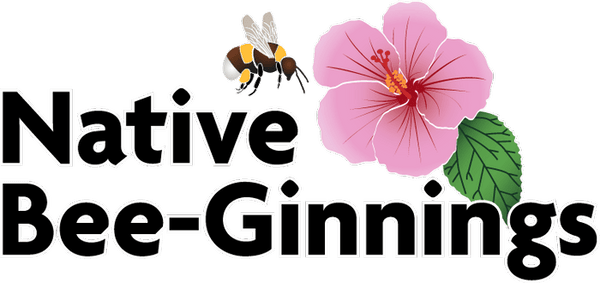Frequently Asked Questions
Collapsible content
Do you use neonicotinoids of any kind?
No, Native BEE-Ginnings does not use any neonicotinoids in our operations.
What is Pure Live Seed (PLS)?
Pure Live Seed (PLS) is a measurement used to describe the quality and viability of seed. It represents the percentage of the pure seed (not mixed with debris, weed seeds, or other materials) that can germinate. This ensures that you know exactly how much of the seed you're planting will potentially grow into healthy plants.
The PLS percentage is calculated using the following formula:
PLS = (% Purity × % Germination) ÷ 100
A certified seed testing laboratory determines both purity and germination percentages. The laboratory rigorously analyzes the seed lot to ensure accurate and reliable data.
For example, if a seed lot is 90% pure and has an 80% germination rate, the PLS would be:
(90 × 80) ÷ 100 = 72% PLS
This means that 72% of the weight of the seed is a viable, live seed.
Why is PLS Important?
PLS helps you understand how much viable seed you are getting when buying seeds. It also allows you to calculate seeding rates more accurately, ensuring successful establishment and efficient resource use.
Bulk Seed vs. PLS-Priced Seed
Bulk seed is often cheaper per pound but contains more inert material (like chaff) and non-viable seed. You aren't getting as many viable seeds as a PLS-priced seed. While bulk seed may seem like a bargain, you often need to purchase and plant more to achieve the same results.
At Native BEE-Ginnings, we ensure that all purity and germination data is backed by certified seed test labs so you can buy with confidence.
How should I store the seeds?
- Store seeds at 32°F to 50°F; freezing is optional with precautions.
- Keep humidity below 50%; add desiccants for long-term storage.
- Use opaque, airtight containers to prevent exposure to light, moisture, and air.
- Label all seed containers with essential details.
- Avoid areas with fluctuating conditions to protect viability.
Why Native Plants are Important?
Native plants are crucial because they support local wildlife by providing food and habitat for native animals and insects, forming the foundation of food webs. Their deep-root systems help prevent soil erosion and improve soil health. Additionally, they contribute to ecosystem resilience by maintaining natural processes and enhancing biodiversity.
